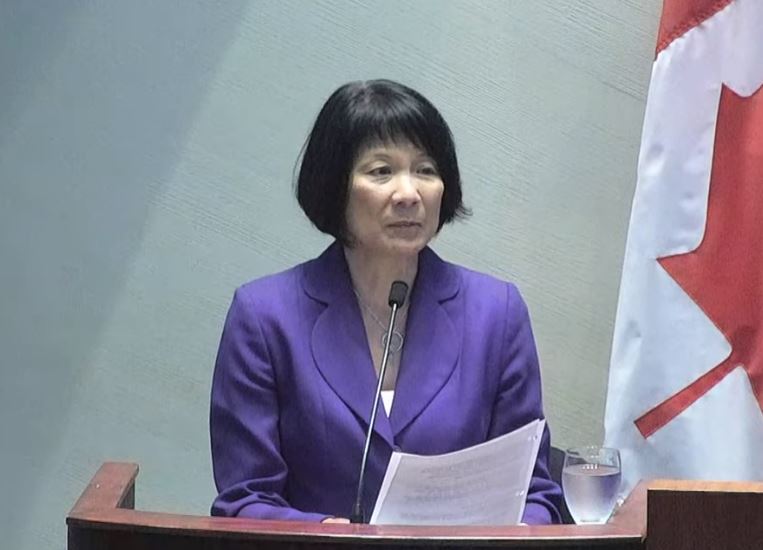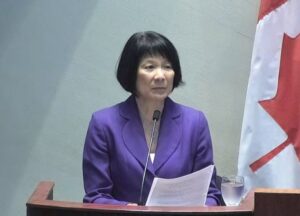Olivia Chow taxes the rich. But it won’t be enough
TORONTO – The “Chow-cure” has begun: in Wednesday’s session, the City Council voted in favor of a series of revenue tools to help plug a billion-dollar budget gap. Fiscal instruments, which were unanimously backed by the city’s executive committee last month, and push on Ottawa for more funds to address the refugee crisis, were high on the board’s agenda.
In particular, the councilors voted in favor of two revenue-generating initiatives: gradually increasing the city’s land transfer tax on luxury homes worth $3 million and more, and removing a five-dollar-per-hour limit for street parking. The councilors also approved an additional study on a commercial parking fee, a monthly cell phone fee for 911 costs, and an increase in the vacancy rate. And they agreed on seeking permission from the Province to implement a city sales tax on goods and services sold in Toronto.
The new phased increases in the land transfer tax would apply to high-value residential properties, including a 3.5% tax for properties between $3 million and $4 million, 4.5% for properties between $4 million and $5 million, 5.5% for properties between $5 million and $10 million, 6.5% for homes between $10 million and $20 million dollars and 7.5% for all properties over $20 million.
Mayor Olivia Chow said there are two sides in her “plan.” “One aspect is what the city can do… we ask people who buy luxury homes to pay a little more. And speculators who leave their apartments empty in the middle of a housing crisis should pay a little more,” she said. “The other thing we’re discussing is what we’re asking the federal and provincial government to ‘do’.”
City officials, in turn, have warned that none of the revenue tools under consideration will be enough to return the City to profit and that Toronto will see a projected budget shortfall of nearly $50 billion over the next 10 years. And if the federal and provincial governments don’t provide the City with new revenue sources, the City could be forced to cut services and projects.
Then, there is the problem of refugees, whose number has increased dramatically. “In exactly two years, we have gone from 537 people (refugees and asylum seekers) in the reception system to over 3,300,” said City Manager, Paul Johnson. A recent report indicates that there could be up to 4,500 asylum seekers in the city’s reception system by the end of the year. “The shelter system in Toronto has no additional capacity to support homeless people,” Johnson stressed. “Over 10,000 people every night are housed in one way or another and this is not a sustainable long-term solution.”
City officials then recommended formally requesting that the federal government provide “full reimbursements to the city” for an estimated $200 million in 2023 projected costs to support refugees and also solicit “continued commitment” from of Ottawa on the interim housing assistance program, including $250 million in funding for 2024 and “future funding” until housing demand is at “sustainable levels.” Another recommendation is to file a federal application for an increase in the Canada – Ontario Housing Benefit, which would include a $6.6 million funding commitment to Toronto.
In short, the “Chow-cure” is not enough: financial support from other levels of government will still be needed to solve the housing crisis, support the refugees arriving in the city and tackle the budget deficit.




